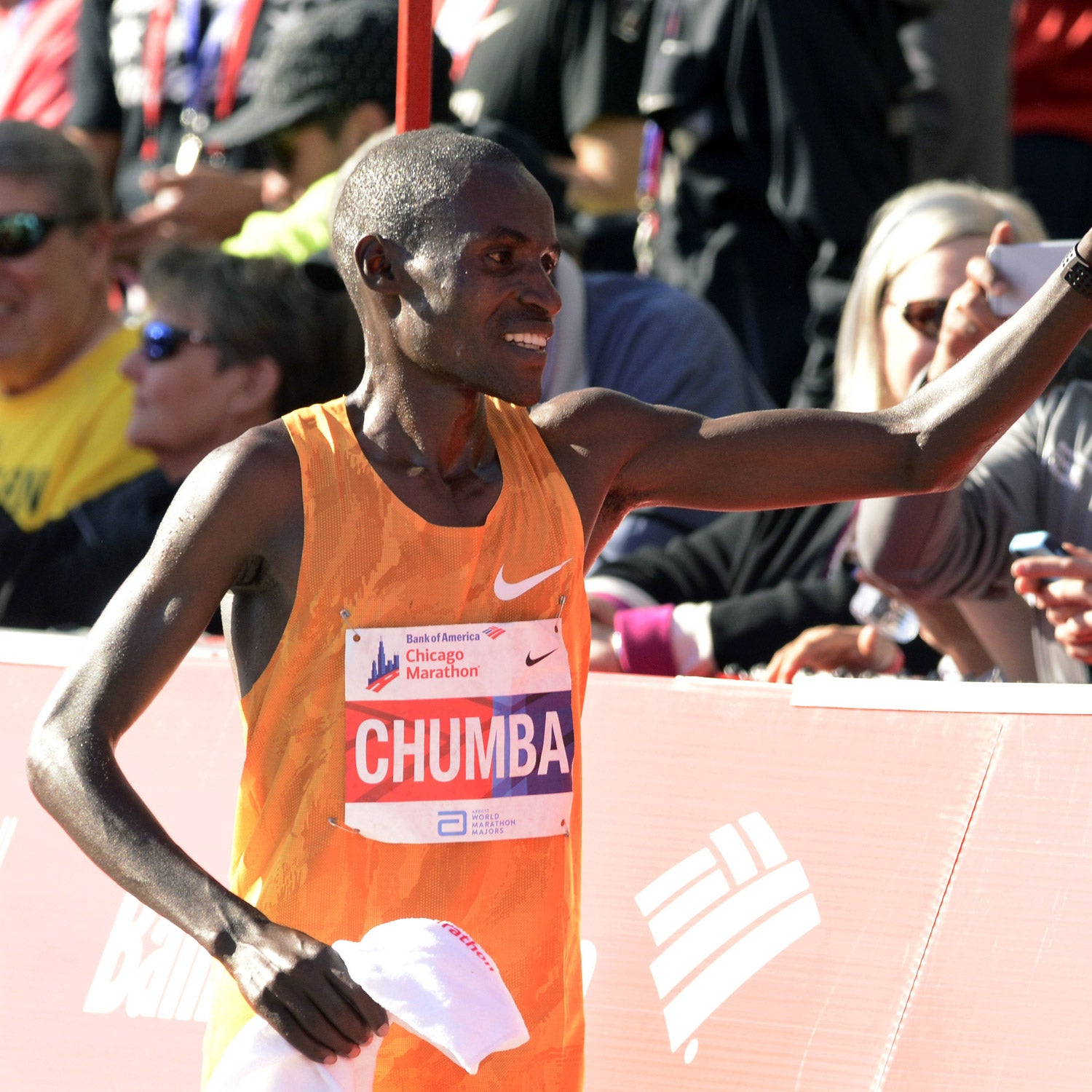Depending on whom you ask, the main story of Sunday’s Chicago Marathon was the absence of designated pacesetters, not included in the race for the first time in twenty-five years. A fixture at many major marathons, these “rabbits” are used to ensure a fast race from the gun and, potentially, help engender new world records.
But no world record was in danger of falling on Sunday. Not even close. Men’s winner Dickson Chumba finished in 2:09:25, the slowest winning time on Chicago’s fast course since 2007, the year an untimely heat wave turned the race into marathoning hell. This year, without pacesetters, the lead pack eased through the halfway mark at 1:05:13. For elite Kenyans like Chumba and Sammy Kitwara, both sub-2:05 athletes, that’s little more than a training run.
As Outside reported last August, Chicago’s race director, Carey Pinkowski, made the decision to forgo the use of pacesetters in an attempt to reinvigorate “the chemistry of the competition.” In recent years, some luminaries of professional marathoning, including American legend Bill Rodgers, have complained that the use of pacemakers dulls the actual racing component in the early stages of marathons; elites can just tuck in behind those tasked with generating the tempo and wait. While this can, under the right conditions, produce world record times, it diminishes the likelihood of exciting tactical moves by runners in the first half of the race.
The Boston Marathon, which doesn’t use pacemakers, offers a useful recent example.
When Meb Keflezghi won Boston in 2014, he broke from the pack not long after the fifth mile, after sensing the pace was slower than he wanted it to be. It was an exciting, courageous move and Meb was rewarded for his boldness by becoming the first American male to win Boston in over 30 years. If the pace had been “artificially inflated” from the start, Meb would probably never have had a chance to assert his tactical superiority.
The fact that Meb’s only other victory in a World Marathon Major came in another unrabbited race, the New York City Marathon, reveals an interesting piece of evidence about this kind of race format: it appears to give the slower guys a chance. When Meb stepped up to the starting line in Boston in 2014, he’d never run sub 2:09. Among those lining up with him in that race were Wilson Chebet (PR 2:05:27), Franklin Chepkwony (PR 2:06:11), and Markos Geneti (PR 2:04:54). In a flat out, go-from-the-gun-and-try-to-hold-on race, Meb has no chance racing against runners who are that much faster than him. It’s why you’ll never see him race Berlin, and why he’ll always have a chance at the Olympics, where the marathon is also unrabbited.
Chicago’s decision to drop their pacemakers means that of the six World Marathon Majors, all three unpaced races now take place in the U.S.: Boston, New York, Chicago. A colleague of mine has said, only half facetiously, that this means that now there are three WMM races that an American has a chance at winning.
Of course, those who benefit most from speedy pacesetting will be less than thrilled when it is not used.
“Running without pacemakers, I don’t think it’s nice for me, for my side,” Sammy Kitwara (PR: 2:04:28) who finished second on Sunday in 2:09:50, said, according to Race Results Weekly.
Even the winner, Dickson Chumba (PR: 2:04:32), expressed mild dissatisfaction with his slow time.
“Maybe if pacemakers were there, (I could) run 2:04 or 2:05,” he said.
As for race director Carey Pinkowski’s response to the top Kenyans grumblings, he didn’t mince words when he spoke to the Chicago Tribune.
“If they didn’t like it, they can go to Berlin next year . . . If one of them wanted to go faster, they could have come up and pushed the pace.”


